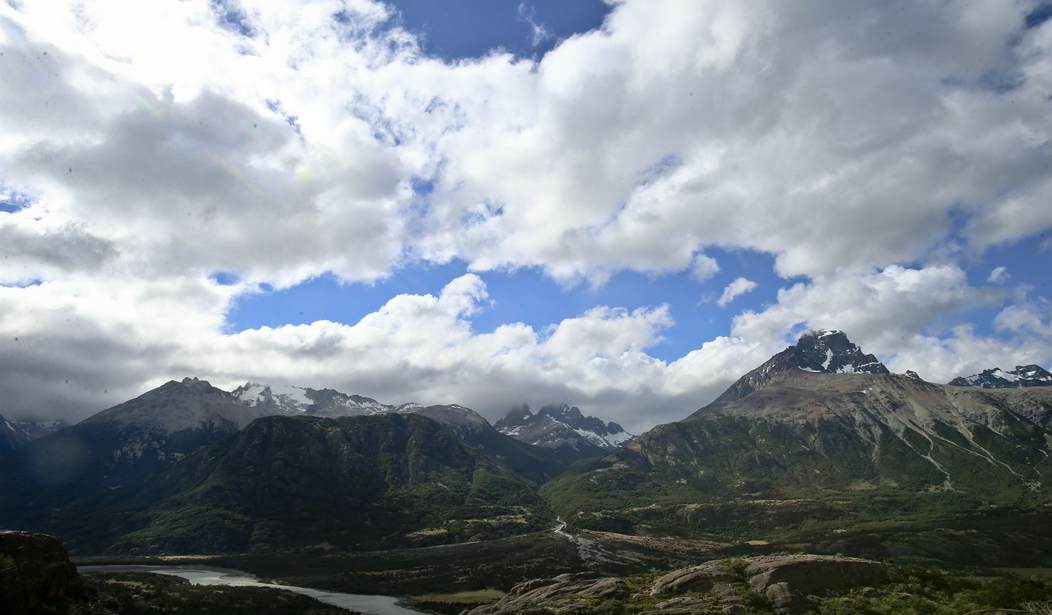Outdoor retailer Patagonia announced its latest stunt: making Earth its sole shareholder.
Founder Yvon Chounaird, a self-described socialist billionaire, penned a letter declaring, “Earth is now our only shareholder.”
Instead of selling the company or taking it public, Chounaird will make the company “go purpose” by establishing a trust and giving “100% of non-voting stock” to a nonprofit called Holdfast Collective:
Instead of “going public,” you could say we’re “going purpose.” Instead of extracting value from nature and transforming it into wealth for investors, we’ll use the wealth Patagonia creates to protect the source of all wealth.
Here’s how it works: 100% of the company’s voting stock transfers to the Patagonia Purpose Trust, created to protect the company’s values; and 100% of the nonvoting stock had been given to the Holdfast Collective, a nonprofit dedicated to fighting the environmental crisis and defending nature. The funding will come from Patagonia: Each year, the money we make after reinvesting in the business will be distributed as a dividend to help fight the crisis.
Recommended
As expected, environmentalists and anti-capitalists showered the company with endless social media praise.
One climate activist, Peter Kalmus, tweeted, “Imagine if every billionaire did this. It would be the end of capitalism. Also, I'll bet it feels fantastic! Those billions have got to be chains weighing down the soul, and most billionaires don't even realize it, they become addicted instead.
But is Patagonia “going purpose” for altruistic reasons or is there a catch? Sadly for the wokesters, evidence points to the latter.
Bloomberg dug further into the Patagonia “deal” and concluded the move is simply to not surrender $700 million in taxes, explaining, “The moves mean Chouinard won’t have to pay the federal capital gains taxes he would have owed had he sold the company, an option he said was under consideration. On a $3 billion sale, that bill could be more than $700 million. It also helps Chouinard avoid the U.S. estate and gift tax, which is a 40 percent levy on large fortunes when they’re transferred to heirs. . . . Using a 501(c)(4) and trust lets Chouinard and his family continue to effectively control the company (family members will remain on its board under the new ownership structure).””
National Review’s Jim Geraghty agrees the stunt is more about forgoing paying taxes than saving Mother Earth. He writes on their hypocrisy:
These guys keep telling the world that it’s morally wrong to take legal steps to minimize your tax bill, but then they turn around and make these moves to avoid hundreds of millions of dollars in taxes.
What a virtuous move from Patagonia. Except it isn’t. I don’t blame them for wanting a tax write-off, but they’re shameless hypocrites.
This is not Patagonia’s first flashy stunt. The corporation has a history of performative actions over business.
First, the woke retailer produced “Vote These A–holes Out” tags in 2020 to call out so-called climate change deniers in elected office.
GQ confirmed: “Now Patagonia has officially confirmed it, stating that the tag appears on their Regenerative Organic Stand-Up Shorts, which they started making in 1973. “We have been standing up to climate deniers for almost as long as we've been making those shorts,” a spokesperson told CNN. The spokesperson added that the brand’s CEO, Yvon Chouinard, has been saying the phrase for years in reference “to politicians from any party who deny or disregard the climate crisis and ignore science.””
Secondly, Patagonia publicly hates fossil fuels and financial institutions that invest in them but inconveniently denies their pricey products are largely derived from - you guessed it - petroleum byproducts.
The American Petroleum Institute called out their hypocrisy on the matter, noting, “While the company is against fossil fuels on climate grounds and follows through with that in many ways, it also is forthright about the use of nylon and polyester in parts of its product line – acknowledging that both are made from petroleum.”
Thirdly, Patagonia’s business practices aren’t only questionable; their environmental advocacy is equally troubling, too.
I recently watched their documentary Artifishal (2019), a film that criticizes America’s state wildlife hatcheries and fish stocking programs for undermining “rewilding” efforts.
But as one critic points out, the company’s namesake – a South American region known as a prime fly fishing destination – is home to sea-trout that were raised in fish hatcheries outside the continent.
Fish and Fly writes, “Those Patagonian sea-trout were not indigenous to the region and were introduced from the UK. As were all the brown trout in New Zealand, Australia, the Himalayas, the USA and Canada. They got to those countries and thrived due to… hatcheries! There is no such thing as a wild sea trout in those countries: all came from hatchery-reared fish eggs.”
Here at Townhall, I’ve dedicated several columns to distinguishing between true conservation and radical preservationist environmentalism.
Patagonia adheres to the latter philosophy that most elected Democrats do: net-zero policies but not for the elites, public lands access but only if they agree with progressive policies, and lower taxes are evil except when they request them.
The American public should cast a skeptical eye on these wolves in sheep’s clothing.

























